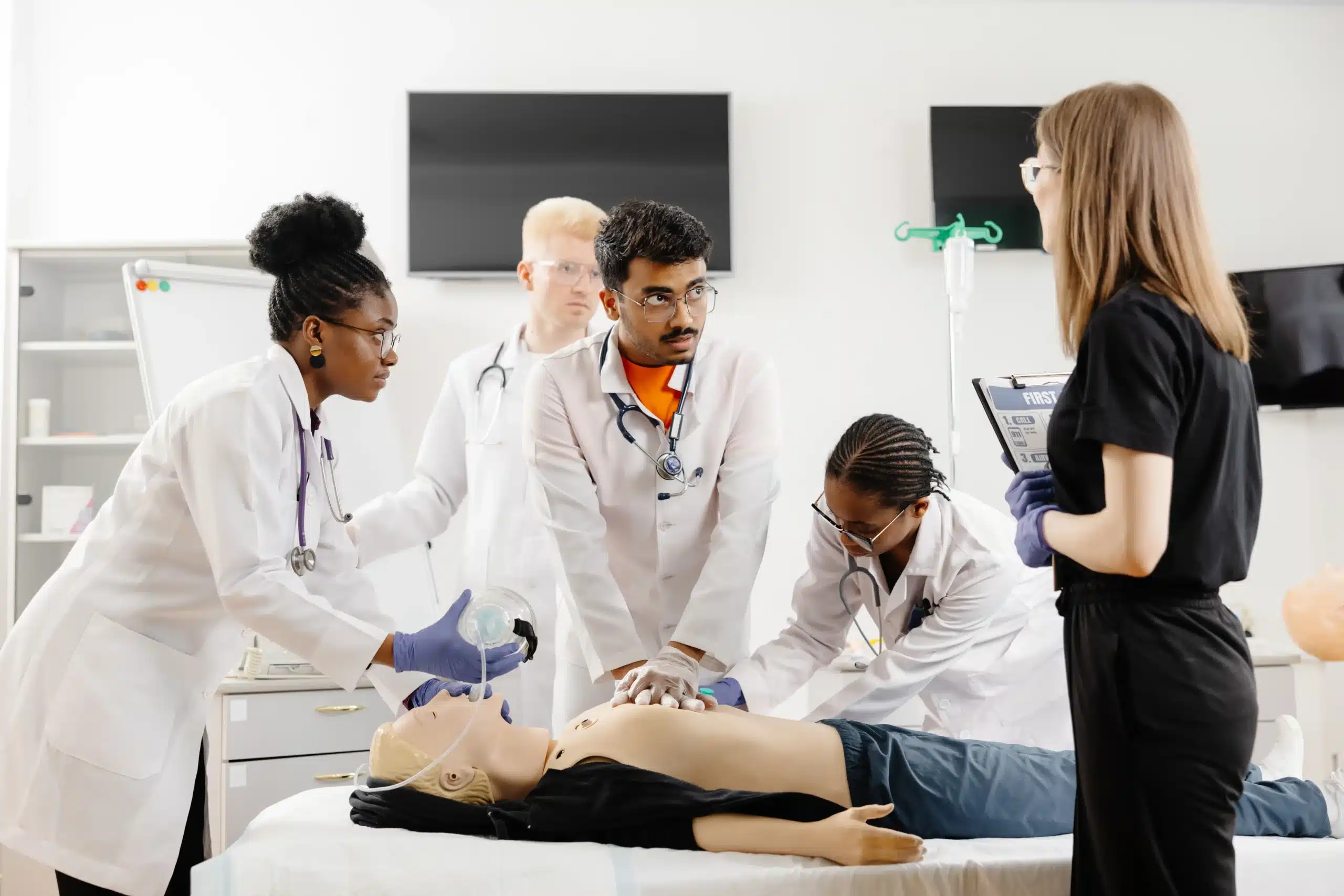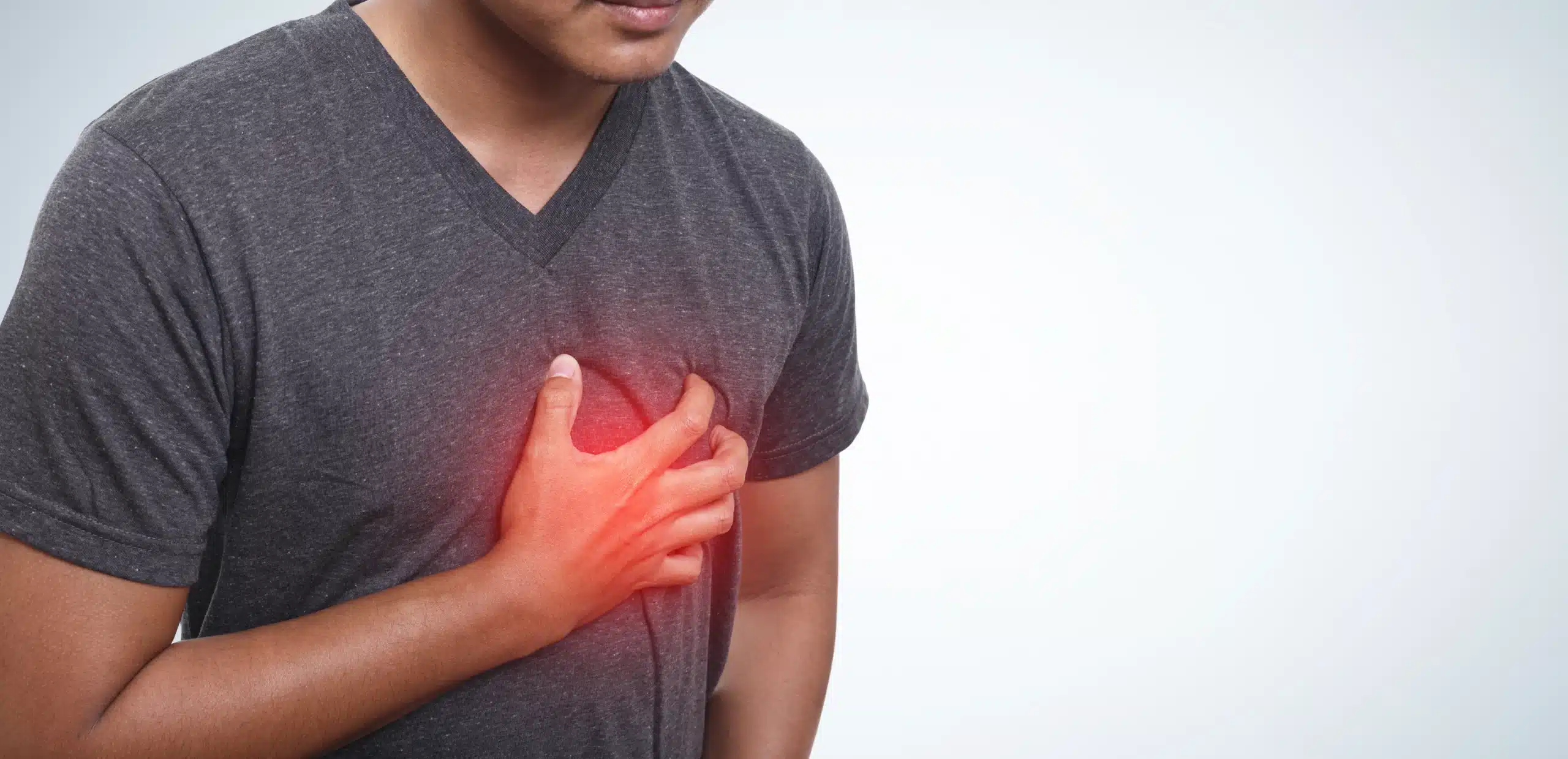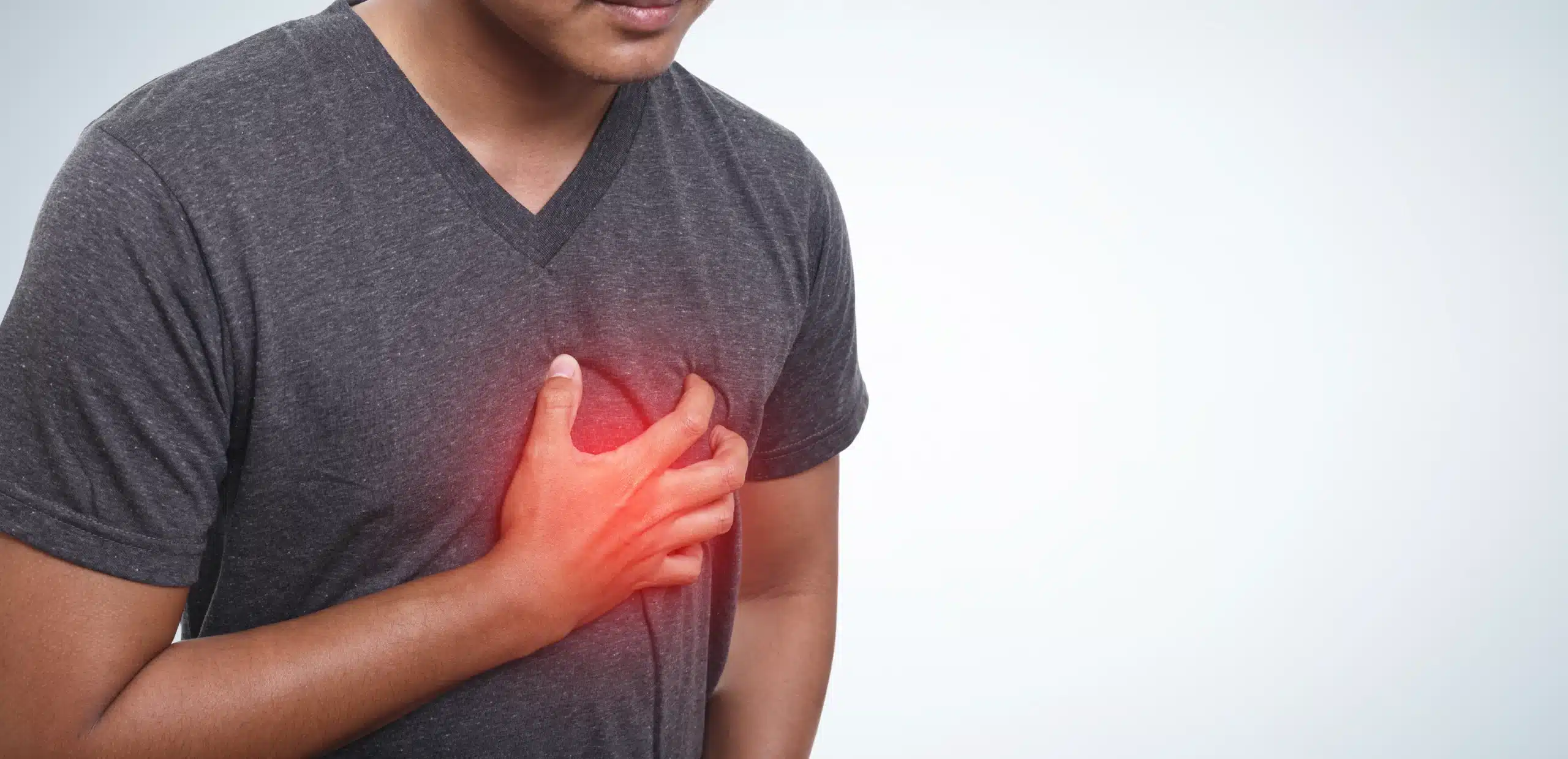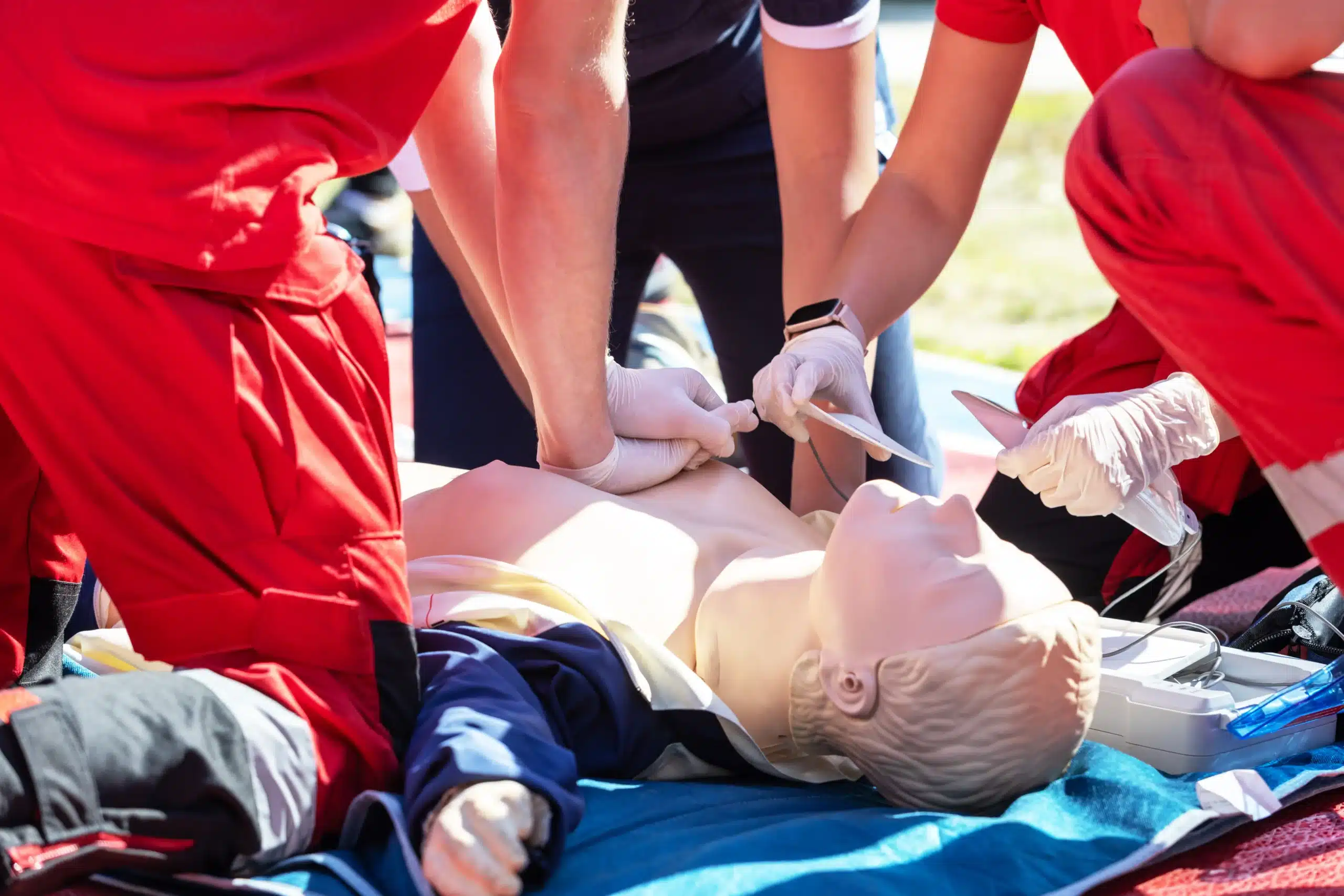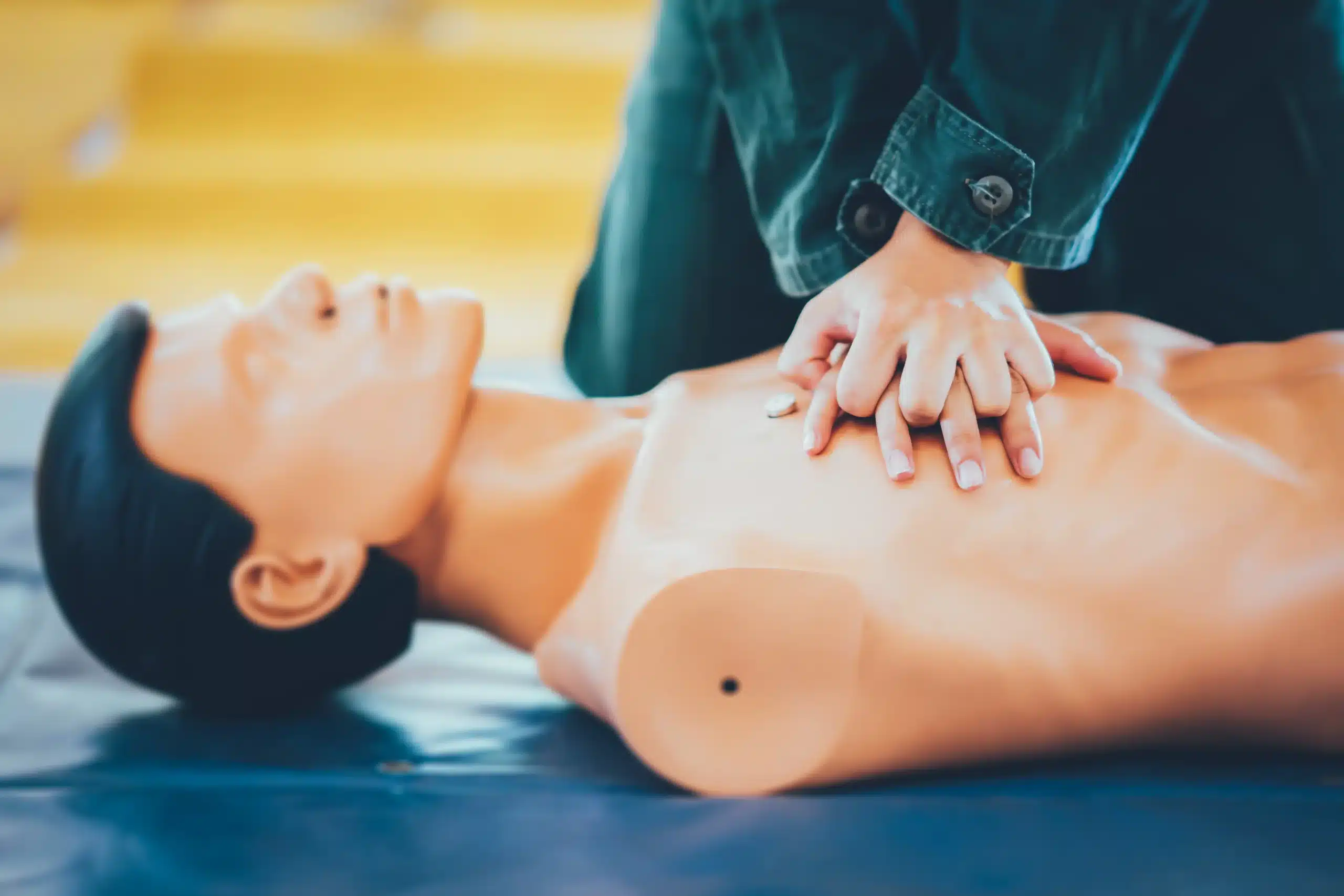Surviving a cardiac arrest and undergoing CPR is a life-altering event. While the focus often lies on physical recovery, there’s an equally important—yet often overlooked—aspect of the healing process: psychological recovery.
For many CPR survivors, the trauma of a near-death experience leaves lasting emotional scars. Anxiety, depression, and post-traumatic stress disorder (PTSD) are common challenges faced by those who’ve gone through resuscitation. Yet, with the right support and strategies, survivors can begin to heal not just their bodies, but also their minds.
This blog explores the profound psychological impact of CPR, actionable coping strategies for survivors and their families, and why a focus on emotional recovery is essential for holistic healing.
What You’ll Learn in This Blog:
- The psychological effects of undergoing CPR and surviving near-death experiences.
- Proven methods for managing stress, anxiety, and the mental toll of resuscitation.
- How emotional well-being accelerates overall recovery.
By the end, you’ll have actionable insights and resources to support this critical recovery process.
Understanding the Psychological Impact of CPR
Immediate Emotional Responses
Surviving cardiac arrest is not just physically draining—it’s emotionally overwhelming. Many survivors report feelings of fear, confusion, and anxiety in the immediate aftermath of resuscitation. This is often due to the sudden nature of the event and the distress of facing one’s mortality so directly.
For some, the trauma results in Acute Stress Disorder (ASD). This condition may include flashbacks to the resuscitation, difficulty sleeping, hypervigilance, or feelings of disconnection from the world around them.
Key stat: Studies show that anxiety affects 13% to 61% of cardiac arrest survivors.
Long-Term Effects on Mental Health
While some survivors recover emotionally over time, others grapple with longer-term psychological challenges, including:
- Post-Traumatic Stress Disorder (PTSD): Approximately 19% to 27% of survivors develop PTSD symptoms such as intrusive thoughts, nightmares, and emotional numbness.
- Depression: Often linked to a sense of helplessness or survivor’s guilt, affecting between 14% and 45% of survivors.
- Survivor’s Guilt: A common experience where survivors question why they lived when others might not.
Beyond these clinical conditions, survivors may find their worldviews fundamentally altered. Many reflect deeply on their purpose, mortality, and life choices, which can lead to significant emotional upheaval but also personal growth.
The Importance of Recognizing These Effects
Psychological screening and early intervention are crucial for survivors to manage these symptoms effectively. Without proper support, psychological distress can compound, hindering recovery and quality of life.
Coping Strategies for Survivors and Families
Mindfulness-Based Techniques
Mindfulness can be a powerful tool for reducing stress and calming the mind. Simple practices like meditation, journaling, or yoga foster a sense of grounding and help mitigate the ongoing anxiety associated with trauma.
Try this exercise:
- Find a quiet space and sit comfortably.
- Take slow, deep breaths, focusing on the sensation of air moving in and out of your nose.
- When your thoughts wander, gently bring your focus back to your breathing.
Even three minutes a day can provide a noticeable improvement in emotional well-being.
Support Networks
No one should face the road to recovery alone. Surrounding yourself with a network of family, friends, or peers who understand what you’re going through is invaluable.
Here are some support options to consider:
- Join local or online survivor groups, such as the American Heart Association’s support communities.
- Participate in family sessions to help loved ones understand and support your recovery.
Hearing stories from others who’ve survived similar experiences can help normalize your emotions and show that recovery is possible.
Lifestyle Adjustments
Recovery often requires a holistic approach. Incorporating healthy habits into your routine can significantly boost both mental and physical health:
- Physical Activity: Moderate exercise like stretching or walking releases endorphins, boosting mood and managing stress.
- Balanced Nutrition: Eating nutrient-rich foods supports brain health and stabilizes emotions.
- Quality Sleep: Sleep is critical for emotional resilience. Try to maintain a consistent bedtime and reduce screen time before bed.
Routines help create a sense of stability and normalcy, both of which are crucial for emotional recovery.
Seeking Professional Help
While self-care techniques are essential, professional guidance can make all the difference in recovery. Trauma-focused therapies such as Cognitive Behavioral Therapy (CBT) or Eye Movement Desensitization and Reprocessing (EMDR) are particularly effective for CPR survivors managing PTSD, anxiety, or depression.
Tips for finding the right therapist:
- Look for professionals specializing in trauma or health-related stress.
- Ask for referrals from your primary care physician or cardiac rehab program.
- Verify credentials and reviews to ensure they’re a good fit.
Therapy is not a sign of weakness—it’s a powerful resource for reclaiming control over your mental health.
Pro Tip: If cost is a concern, many therapists offer sliding scale fees or virtual group therapy sessions at a reduced rate.
Why Psychological Recovery is Essential
Psychological healing doesn’t just enhance emotional well-being—it directly impacts physical recovery. Studies have shown that chronic stress and untreated trauma can impair the immune system, slow physical healing, and increase the risk of future health complications.
Addressing emotional health:
- Reduces cortisol levels, a stress hormone that can hinder immune function.
- Improves adherence to cardiac rehabilitation programs.
- Enhances sleep quality, which is crucial for overall recovery.
Mental and physical health are deeply interconnected, and treating one aspect without the other leaves survivors vulnerable to incomplete recovery.
Caring for your mind is just as important as caring for your body.
Taking the First Step Toward Recovery
Every survivor’s recovery journey is unique—but one thing remains universal: you don’t have to face it alone. Healing takes time, patience, and the right support network, but it is absolutely achievable.
If you know someone who could benefit from these tips, share this blog with them today—because support can make all the difference. Additionally, consider enrolling in American Heart Association-certified CPR classes in Sacramento like CPR and First Aid, Basic Life Support (BLS), Advanced Cardiac Life Support (ACLS), or Pediatric Advanced Life Support (PALS). Not only will you be better prepared to save lives, but you’ll also gain invaluable insights into the post-CPR care process.
Together, we can build stronger, healthier, and more resilient communities.



